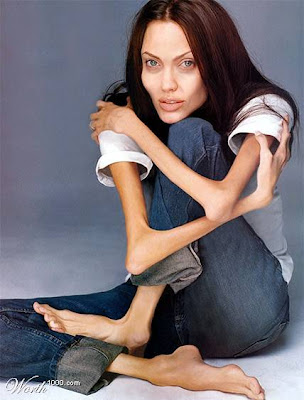
Many of those who suffer intestinal disease such as Celiac Disease cannot understand the mysterious weight gain, and sometimes inability to drop pounds after diagnosis. Aren't we all supposed to be anorexic and gauntly in appearance? Weight gain should not be a problem for us!
Contrary to that popular belief, about 39% of Celiacs battle unwanted bulge. One explanation is our inability to absorb some nutrients and not others, for instance we may be able to absorb some vitamin C but cannot absorb the B vitamins. This, according to www.glutenfreeworks.com, causes us to crave foods with those nutrients, and it can send us on an over-indulging frenzy. They explain, "Undigested nutrients that are not absorbed are then dumped into the colon where bacteria ferment them into short chain fatty acids which are then absorbed into the body and stored as fat because the body doesn’t need all that energy. For example, if unabsorbed proteins are fermented in the colon, the body will get the protein for use in muscle repair or enzyme production or hormones. Instead it will receive energy, in the form of fatty acids, in greater amounts than the body needs."
Another explanation is that gluten free food is not always healthy and balanced. When we are diagnosed we go through a psychological change regarding food. Suddenly we want what we cannot have and we are pissed about it. Even though we may not have even LIKED bran muffins before or sandwhiches or lasagna... now this mental and emotional process is telling us we are victims and we should deserve to have those things. So when we are shopping up and down the gluten free isle in Wholefoods and spot some muffins in the freezer that are gluten free, we throw 4 in our cart like they're free and we've never eaten before. And, oh look! Gluten free donuts? Cookies!? Cake? Animal crackers! Pound cake mix!? oooooh gluten free oreos. SCORE. But even the "healthy" gluten free items are packed in sugar and simple carbohydrates. Because they cannot use whole wheat flours, they are stuffed with high starch flours such as tapioca, potato, corn and soy flours. All of which are processed into your body as sugar and eventually stored as fat.
Also, I have even heard some people say that in order to LOSE the weight, they are going to just start eating gluten and hitting up the bottomless pasta bowls at Olive Garden.
Makes sense, right? Because when we were sick, any gluten in that amount would just come right on out the other end. We can suffer a few weeks of discomfort, sweating and napping on the toilet, no problem.
But then... that doesn't happen and instead you become constipated. Now wait a minute! You should be puking and crying on the toilet! But you're not. Sorry. That technique won't work either. If you are malnourished, like most Celiacs are, and you consume gluten during a time you are not having a Celiac "outbreak" (probably because your body has begun to heal since you started eating GF), your body will react differently than when you were at your sickest. Your body will get angry.
If you crave gluten, it's probably the amino acid glutamine that you are starving for. Gluten protein has a large quantity of glutamine, that - in healthy people- is easy to get by eating whole grains and fibers. But Celiacs can't touch that stuff and we are often very deficient in glutamine. So get a probiotic or l-glutamine supplement to take each day with your vitamins and those cravings will subside in a week or so.








